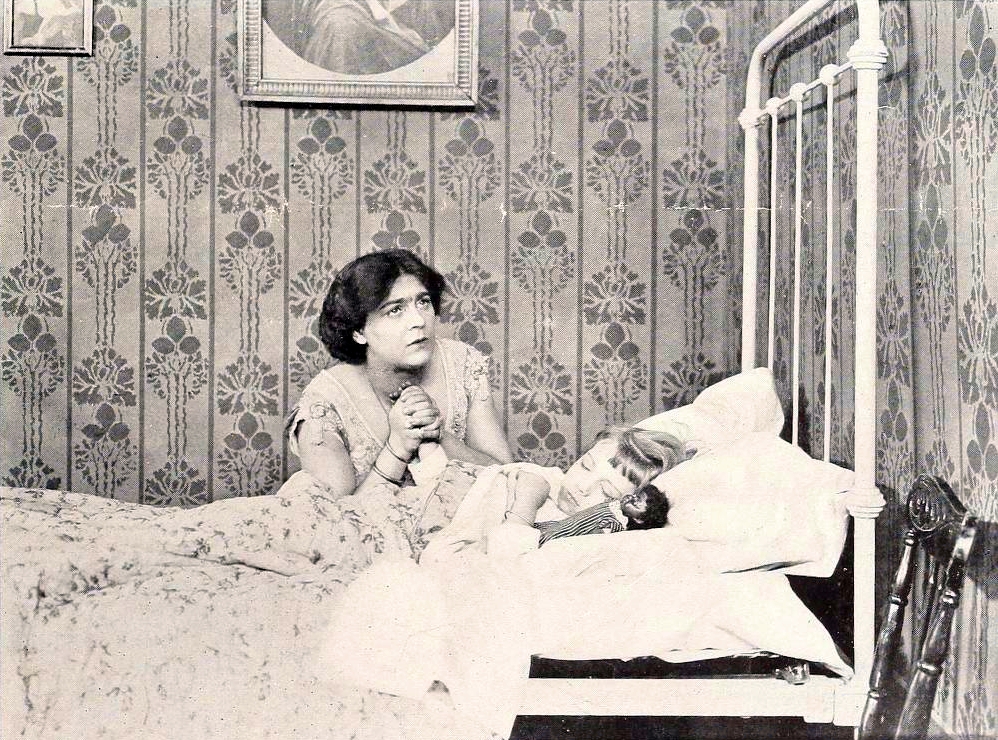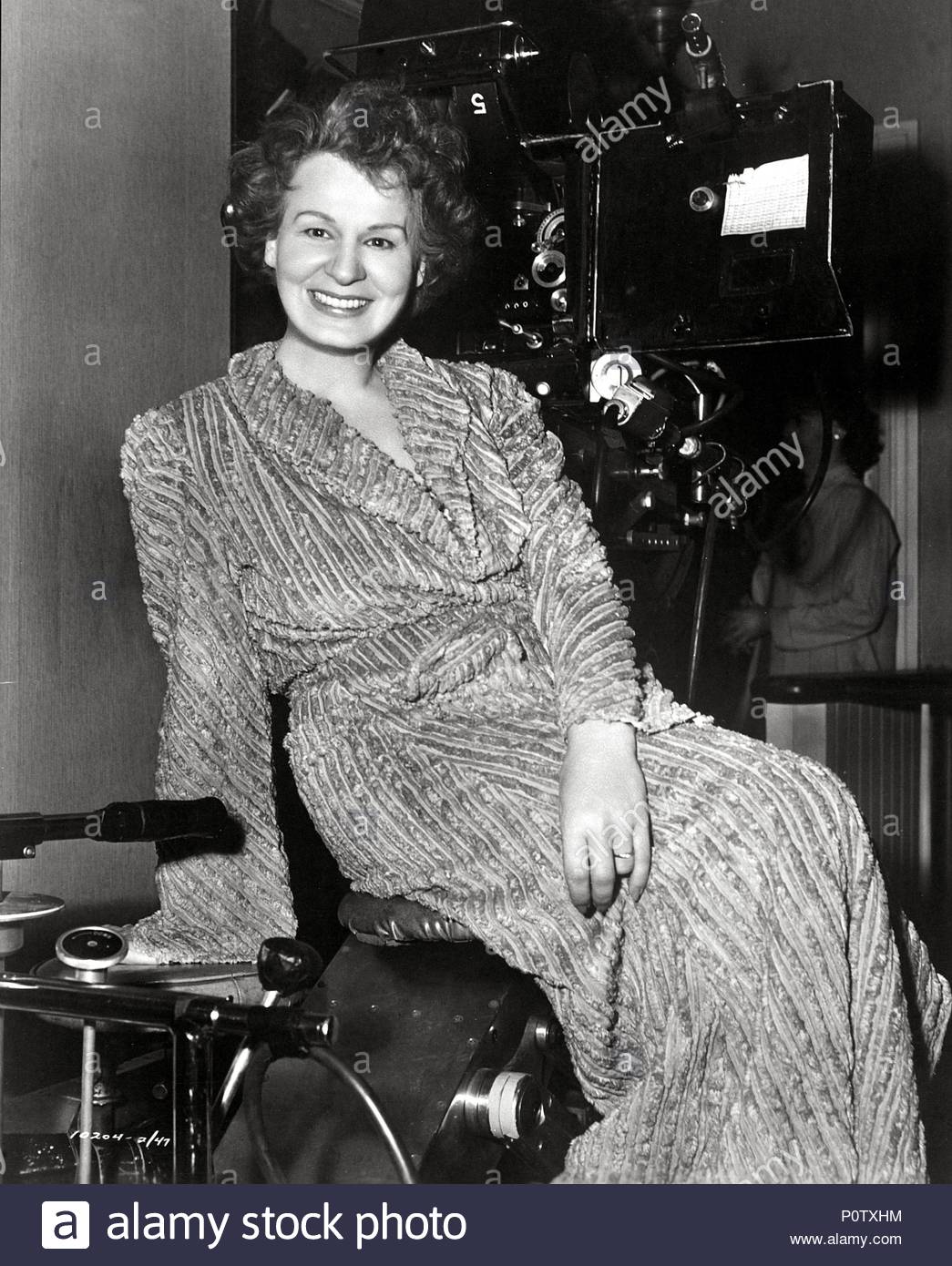Lottie Briscoe (April 19, 1883 – March 21, 1950) was an American stage and silent screen actress. She began in theatre at the age of four and as an adult was among the first to find success after making the transition from the legitimate stage to cinema. Briscoe appeared in over 94 motion pictures; she is perhaps best remembered for her time at Lubin Studios with co-star Arthur V. Johnson.
=========================================================================
========================================================================
Friday, August 12, 2022. 20:30.
Lottie Briscoe - Actress
========================================================================
About :
Still photo of Briscoe from The Beloved Adventurer (1914)
Born April 19, 1883, St. Louis, Missouri, U.S.
Died March 21, 1950 (aged 66), New York, New York, U.S.
-----------------------------------------------------------------------------------------------------------------------
Other names Little Lottie Briscoe
----------------------------------------------------------------------------------------------------------------------
Spouse(s)
1.Harry McRae Webster - (m. 1903; div. 1911)
2.Harry Mountford (m. 1921)
---------------------------------------------------------------------------------------------------------------------------
Introduction :
Lottie Briscoe (April 19, 1883 – March 21, 1950) was an American stage and silent screen actress. She began in theatre at the age of four and as an adult was among the first to find success after making the transition from the legitimate stage to cinema. Briscoe appeared in over 94 motion pictures; she is perhaps best remembered for her time at Lubin Studios with co-star Arthur V. Johnson.
------------------------------------------------------------------------------------------------------------------------
Family :
Lottie Briscoe was born in St. Louis, Missouri to Mr. and Mrs. T. D. Briscoe. Her father may have been involved in theatre work and her mother was known to the theatre community as a likable stage mother. A sister, Olive Helen Briscoe, had long a career in vaudeville as a singer and comedian. At the time of her death The New York Times reported that Briscoe was 79 years old, which is unlikely, for it is well documented that she was active as a child actor as late as 1895. A possible explanation may lie with confusion involving Briscoe’s frail husband, Harry Mountford, who at the time was 79 and had not long to live.
--------------------------------------------------------------------------------------------------------------------
Stage :
Little Lottie Briscoe
The New York Public Library Digital Gallery
Briscoe first appeared on stage at the age of four, and by nine she was touring as Editha in Gus Thomas' adaptation of Frances Burnett's children's story Editha's Burglar. Three years later, in June 1895, she was engaged at the Fifth Avenue Theatre, New York, to play Julian Esmond in the Russ Whytal melodrama For Fair Virginia, but was replaced after just two nights when the mayor's office determined that the weather was too hot for a child under sixteen to be working in. Briscoe eventually did return to For Fair Virginia to play Julian Esmond over a subsequent road tour that lasted well into the spring of 1897. By October 1897 Briscoe was back at the Fifth Avenue Theatre with Richard Mansfield's company as Essie in the American debut of Shaw's The Devil's Disciple. In 1899 she toured with Walter E. Perkins playing Gertie in a farce-comedy entitled My Friend from India by Henry A. Du Souchet.
During the 1900–1901 season Briscoe assumed the role of the sickly boy Claude in a national tour of Two Little Vagrants, Charles Klein's adaptation of the Pierre Decourcelle melodrama Les Deux Gosses. The following season she began a long tour playing Asa opposite Paul Gilmore in Lost River; advertised as a pastoral melodrama by Joseph Arthur. In 1905 Briscoe toured in the Harry McRae Webster military drama Lieutenant Dick, U. S. A. playing Machita to Webster's Sergeant Jones. By this time, Briscoe and Webster had been married for two years.
-----------------------------------------------------------------------------------------------------------------------
Film :
Lottie Briscoe
The Belovéd Adventurer 1914
Around 1909 Briscoe, along with Harry McRae Webster, joined the fledgling Essanay Studios, Chicago. At least two films during this period, both one-reelers from January 1911, are known to exist today; The Sophomore’s Romance and A Sin Unpardonable.[24] In June 1911 she played Zenia in Essanay's His Friend's Wife, remembered for Francis X. Bushman's film debut. Her peak years were with Lubin Studios in short films that often cast her with the actor-director Arthur V. Johnson. Their most ambitious project together during this period was probably The Belovéd Adventurer (1914), a 15-episode serial written by Emmett Campbell Hall. When Johnson died in January 1916, shortly after the release of their latest film, the Maie B. Hovey story The Lost Rose, Briscoe left film and did not return until 1918, and then only briefly to play Gertie Farish in The House of Mirth.
------------------------------------------------------------------------------------------------------------------------
Later years :
In 1919 Briscoe began a long run in vaudeville playing the title role in a domestic comedy by George Kelly entitled Mrs. Wellington's Surprise. That October 19 she was among a group of celebrities who performed at the Manhattan Opera House in a benefit on behalf of the Chelsea Memorial Association in raising funds for the Chelsea Park Memorial in Manhattan. One of a number of such memorials erected in the city during this time honoring local residents who gave their lives during the First World War. In February 1922 Briscoe signed to appear in a leading role with William Faversham in The Squaw Man. At some point in the not too distant future serious health issues would leave Briscoe homebound for the remainder of her life.
Harry McRae Webster became a motion picture director of some note before he was sued in the early 1920s by a film studio over the unauthorized use of nude models in one of his movies. Her second husband, Harry Mountford, served as a longtime executive secretary for the White Rats actors union.
Briscoe died on March 21, 1950, in New York, and her husband died on June 5, 1950.
-----------------------------------------------------------------------------------------------------------------------
Selected filmography :
His Wife's Friend (1911)
The Country School Teacher(1912)
The Shadow of Tragedy (1914)
The House of Mirth (1918)
End.
=====================================================================
Media Reports :
1. Lottie Briscoe: Star of Stage, Screen and Vaudeville
Lottie Briscoe (1893-1950), an interesting figure of stage, screen and vaudeville, was born on this day. She joins our Lotta Lotties: Lottie Gilson and Lottie Collins, not to mention Lotta Crabtree and Lotta Faust. Lotta people liked that name back then. And, counterintuitively (all you Law and Order fans) the name Briscoe (as in Lenny Briscoe) is totally WASPY, it turns out. Its roots go back to Old Norse. Ya figure with that vowel at the end its gonna be Italian, and Jerry Orbach was of course Jewish. Nope! At any rate, its a tangent, its just something I learned when researching this lady.
Originally from St. Louis, she was performing onstage by age four as “Little Lottie Briscoe”, initially touring with melodramas with stock companies throughout the middle west. By the late ’90s she had made it to New York, appearing in the first American production of Shaw’s The Devil’s Disciple, presented by Richard Mansfield at the Fifth Avenue Theatre. She continued touring regionally throughout the first decade of the 20th century. In 1903 she married actor, playwright and director Harry McRae Webster, whose play Lieutenant Dick, U.S.A. she co-starred in, in 1905.
By 1910, the pair were in Chicago, where they were hired by Essanay Studios, she to act, he to direct. The pair divorced in 1911. One of the films Briscoe made at Essanay, His Friend’s Wife (1911) contained the film debut of Francis X. Bushman. In 1912, she moved to Lubin Studios, where she starred in scores of films through 1915, often popularly paired with Arthur V. Johnson. When Johnson died of T.B. in early 1916, Briscoe retired from cinema rather than risk it without him. She returned to the screen but once, in a supporting tole in 1918’s The House of Mirth.
In 1919 she began touring vaudeville in a George Kelly playlet Mrs. Wellington’s Surprise, which sustained her professionally for some time. She married her second husband, Harry Mountford, head of the vaudeville performers trade union, the White Rats, in 1921. The following year, she appeared as the titular squaw in a revival of The Squaw Man with William Faversham. The production made it to Majestic Theatre in Brooklyn, but not to Broadway. This is her last apparent professional credit.
After this, murk. She appears to have retired from acting entirely due to an undisclosed but debilitating illness. She died around the same time as Mountford in 1950.
To find out more about the history of vaudeville, consult No Applause, Just Throw Money: The Book That Made Vaudeville Famous, and for more on silent film see Chain of Fools: Silent Comedy and Its Legacies from Nickelodeons to Youtube.
======================================================================
2.The Country School Teacher(1912)
Plot :
Summaries :
In a western village lives Molly Mason, a girl who has never known restraint, and above all has never known kindness and love. Her brother, Fred, is fond of her in his rough way and admires her spirit of rebellion. Among the villagers she is a terror, and with the school pupils she is idolized as the captain of disorder. Budding into womanhood in her wild ways, Molly comes up against Neil Freeman, the new school-teacher. In the first day of school disorder Freeman takes in the situation. He realizes that discipline is the chief need of his overgrown pupils and he also realizes that Molly must he conquered of her rebellious ways. Neil Freeman is a man of determination and when he made up his mind to introduce that element of discipline in his school he meant to accomplish this at all hazard. Being a man of large frame and strength, he readily subdues the boys by physical force. With Molly it is a different proposition. His knowledge of women is that they must be handled with gentle firmness. These tactics Freeman uses with Molly, but as she does not understand them, she laughs. Her brother supports her in her rebellious attitude towards the teacher. Not until fright and pity are for the first time aroused in the heart of the girl is her rebellious spirit broken. This happens when her brother strikes Neil Freeman senseless in a fit of anger. Then Molly becomes a woman, and so much a woman that she falls in love with the very man she had declared she hated. Neil Freeman has long before fallen in love with the spirited girl.
—Moving Picture World synopsis
Synopsis:
It looks like we don't have a Synopsis for this title yet.
Be the first to contribute! Just click the "Edit page" button at the bottom of the page or learn more in the Synopsis submission guide.
END.
=====================================================================










.jpg)





.jpg)
.jpg)
Comments
Post a Comment